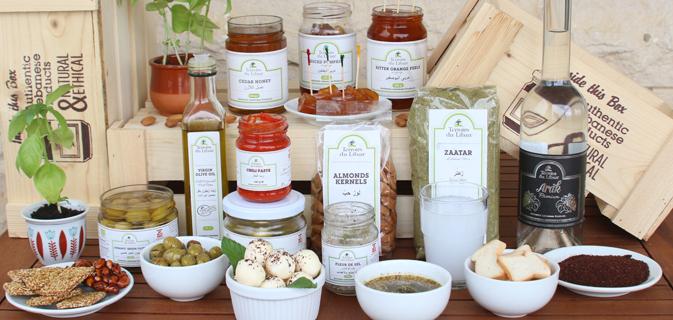 The Lebanese economy has been struggling for the past months due to the devaluation of the Lebanese Lira. This crisis, coupled with the deteriorating economy and the outbreak of the COVID-19 pandemic, has severely hit the torn-apart country.
The Lebanese economy has been struggling for the past months due to the devaluation of the Lebanese Lira. This crisis, coupled with the deteriorating economy and the outbreak of the COVID-19 pandemic, has severely hit the torn-apart country.
Within these circumstances, HN tried to explore how suppliers of niche products have been doing so far and how their business has succumbed to the crisis.
Julien Khoury
Managing partner – Gourmet Mushroom
How did the financial crisis impact your business and are clients buying Lebanese products because they are more affordable?
First of all I would like to say, even though our mushrooms are 100 percent grown in our farm in Byblos, Lebanon, 72 percent of our cost is still in relation with Euro, hence our cost has jumped significantly.

Before the crisis had started in October 2019, Gourmet Mushroom had succeeded in building a successful and a healthy market for organic mushrooms consumption in Lebanon. Our products were in high demand and won over any competition imported either from Europe or the Far East for many different reasons, including the freshness, which is a very important factor taking into consideration the short shelf life of mushrooms. Quality is also a key factor. Our team of growers has learned how to perfect growing all sorts of organic and exotic mushrooms. Price is also essential due to the large volumes we used to produce pre-October 2019, our cost was quite competitive. Certified with ISO and HACCP, our highly trained team members knew how to take good care of our beloved clients. Packaging is important, therefore our R&D department never skipped an exhibition taking place anywhere in the world in relation with fresh foods distribution or mushroom growing in specific.
Frankly speaking, the devaluation of our Lebanese currency left the consumer with no other option but to buy Lebanese products due to the disappearance of Dollars from the market, but at the same time, it left our customers paralyzed and unable to cooperate with the catastrophic increase in the prices of all products, especially commodities.
Who are your clients and how were they affected?
Pre-October 17 2019, our farm was still witnessing some growth, even though the instability of the market back then was real, but somehow, we managed to sail smoothly between all the hiccups and the bumpy roads. Gourmet mushroom was proudly distributed on a daily basis to over 740 clients in Lebanon divided between: restaurants and lounges, hotels, catering companies, supermarkets, wholesalers, and food distributors. We used to export to five different countries in the GCC, including Qatar, KSA, Kuwait, UAE, and Bahrain.
After the revolution, most of our clients couldn’t absorb the huge losses, especially after the road blockades. Businesses were forced to shut down. Whoever made it to the beginning of 2020, didn’t know that COVID-19 was waiting behind the door to kill whatever was left of their business. To make a short ending to this miserable story, due to the drop in our production volumes from 45+ tons / month to averaging 9 tons / month, our cost jumped even higher than usual. We lost all our export clients. And we are left distributing to less than 200 clients in Lebanon, who are struggling on a daily basis, waiting for their closure day.
Tell us more about your production?
Pre- October 2019, Gourmet Mushroom, was producing approximately 15 to 18 different genres of organic and exotic mushrooms, including white button mushrooms, cremini, portobello, shiitake, grey oyster, yellow oyster, pink oyster, king oyster aka Eryngii, nameko, shiimeji, enoki, pompom aka Lion’s mane, reishi and maitake. Along with our famous 100 percent pure mushroom powder that consists of seven different genres of mushrooms, dehydrated in house and grinded into a lovely mix with no additives. Currently, in the middle of this terrible crisis, we are barely producing five different genres of mushroom.
How did you adapt your offering to cater to the market?
When the lockdown started in March 2020 due to the COVID-19 outbreak, we started growing different kinds of vegetables demanded by the Lebanese market, to utilize the empty space that was previously used to grow mushrooms at full capacity. That helped us generate an additional income.
Where do you see the industry heading?
I’m known to be the positive and optimistic guy who always looks at the full half of the cup, but this time I really doubt this industry, or many other industries in Lebanon are heading to any pleasant or positive direction. That is why we keep losing our innovative brainiacs, who are constantly fleeing out of this country seeking a safer and healthier better future.
Philippe Adaime
CEO – Terroirs du Liban

Antoine Adaime
How did the financial crisis impact your business?
The story of ‘Terroirs Du Liban’ dates back to 2005. We started by targeting international markets, and our main objective was and will remain helping cooperatives in different Lebanese areas to export and display their products in global markets. Before the economic crisis, and as per the constant request of the Lebanese market, we decided to expand our presence locally. We started selling our authentic Lebanese products not only in our main boutique but in supermarkets. In 2018, the Lebanese market started suffering from the difficult economic situation, which affected us as ‘Terroirs Du Liban’ and made us go back to basics in terms of our presence in the market, focusing mainly on the exports and the boutique retail. This year, and after our withdrawal from the local market and the huge spread of Covid-19, we shifted to online platforms and e-commerce websites such as QuickBuy, Toters, Buy Lebanese, and Min Baladi etc… for both economic and safety reasons. We also opened a franchise to our signature Boutique in Rabieh.
Who are your clients and how were they affected?
Even though the economic situation decreased the purchasing power, our clients are still willing to support cooperatives in any way possible. Especially after the outbreak of Coronavirus, customers became more socially aware and tended to buy less, but consumed good quality products with international standards and certifications.
Did you innovate in your offering to cater to this market?
Innovation is part of our DNA and we always work on it. During this economic crisis, our innovation consists of introducing new products like ‘hummus with ruffle and tahini’. Innovation is always necessary for brands and has become even more necessary in order to overcome these difficult times.
Where do you see the industry heading?
Businesses in Lebanon are now facing a lot of challenges, but difficult times are also great opportunities to be more focused and think outside the box; which will make you standout.
Given our country’s economic system, export is our main port! Lebanese cuisine is well known and appreciated all around the world. Working together, hand in hand on the quality of our traditional, luscious and authentic products will help break the barriers and create balance between the export and import system in the country.
We recently launched the BIEEL initiative funded by the US-MEPI. It will support

100 cooperatives and SMEs, through productivity improvements and quality enhancements, and access to international clients. It will also facilitate export procedures through a portal intended to serve this purpose. The cooperatives and SMEs will be divided in clusters (Oil & olive oil, wine, zaatar, tahini, potato chips, pastry & sweets, fruits & nuts…).















